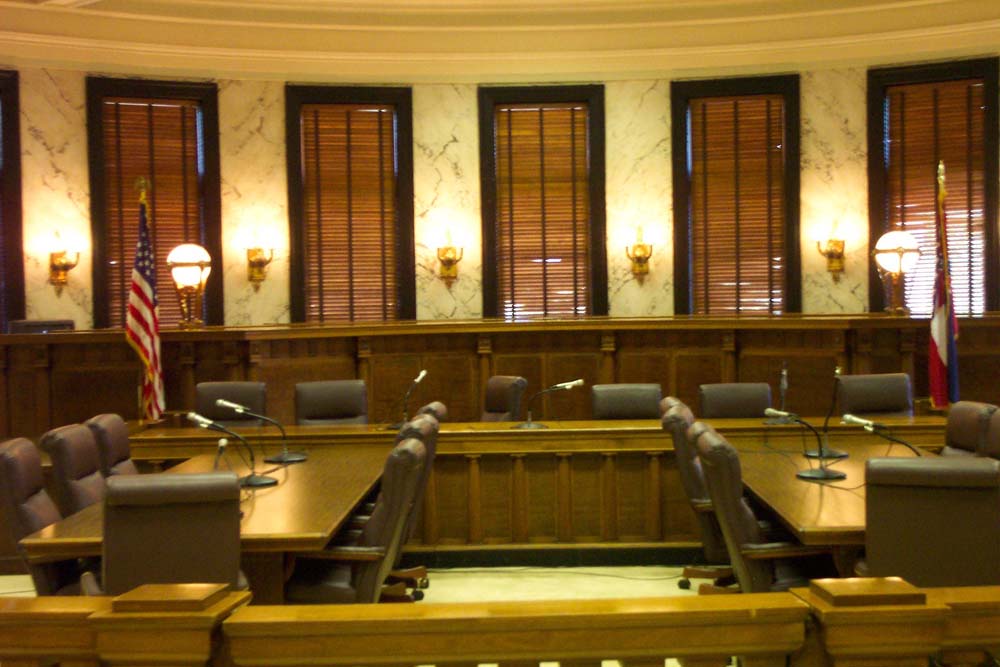Kirk Heilbrun, a professor in the Department of Psychology, and Emily Haney-Caron, a third-year law degree/psychology doctorate candidate, examined the impact on custody disputes of data that shows that children raised in gay or lesbian households are just as well-adjusted as those raised in heterosexual households.
The review, “Lesbian and Gay Parents and Determination of Child Custody: The Changing Legal Landscape and Implications for Policy and Practice,” appeared in the first issue of the American Psychological Association’s new journal, Psychology of Sexual Orientation and Gender Diversity, this March. The duo also presented their findings that same month at the APA’s American Psychology-Law Society conference.
Because one partner may not be legally recognized as the parent of a same-sex couple’s child, that parent can be denied visitation and custody rights if the couple separates. Individuals who come out as gay or lesbian at the end of a heterosexual relationship can have their rights limited as well.
Custody battles do not involve a jury. Rather, as Haney-Caron explained, the judge functions both as the legal expert and the decision-maker. Court psychologists also play a role, as they evaluate whether a parent is fit to have custody of the child or children.

One notable example of this phenomenon occurred in 1999 in Jackson, Miss. David Weigand, a homosexual father, sued for custody of his 14-year-old son in 1997. His son had called the police to report that his stepfather had threatened to kill him and his mother.
However, the county Chancery Court ruled that the teen should remain with his mother and stepfather. The chancellor also ordered for Weigand’s partner of eight years to leave their jointly-owned residence when the teen visited during the summer. The state’s Supreme Court affirmed that chancellor’s custody decision six-to-three, though it reversed the visitation changes.
“There are a number of more recent cases, but [custody decisions] are usually not published unless they are appealed,” Haney-Caron said. “Certainly there are cases in the popular media that indicate these issues are still going on today.”
Even now, there are still laws in Texas that state sodomy is illegal, and they still exist in Louisiana despite a U.S. Supreme Court ruling declaring them unconstitutional. Until Lawrence v. Texas in 2003, it was possible for gay or lesbian parents to be declared unfit because they qualified as criminals.
“Certainly some judges do take the research [concerning gay and lesbian households and children] into consideration,” Haney-Caron said, “[but] some of them might not be aware of the research, some of them might not be convinced, some of them might feel like it does not apply to this case.”
Heilbrun and Haney-Caron hope that legislators will take into consideration the research that supports the stability of gay and lesbian homes. They also have recommendations for court psychologists, judges presiding over custody debates and legislators.
“[We look at] the court decisions, how they were affected by the research. … There’s relevance in all of these areas, but our approach was focused on recommendations for psychologists regarding evaluation,” Haney-Caron explained.
They say that psychologists conducting evaluations for gay and lesbian custody disputes must understand the relevant law and research, ensure that their own biases do not influence their judgment, and acknowledge that the nature of these cases affects the information and evidence presented to the judge. The judges themselves also should take the research into account. Finally, according to Haney-Caron and Heilbrun, legislators ought to combat discrimination by creating laws preventing judges from taking a parent’s sexual orientation into account in these cases.


